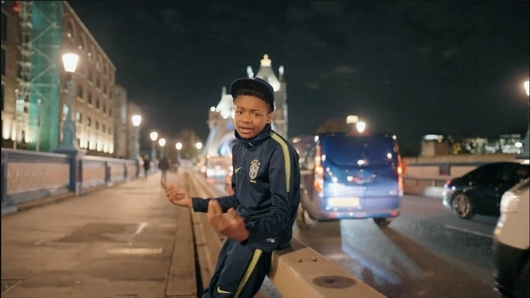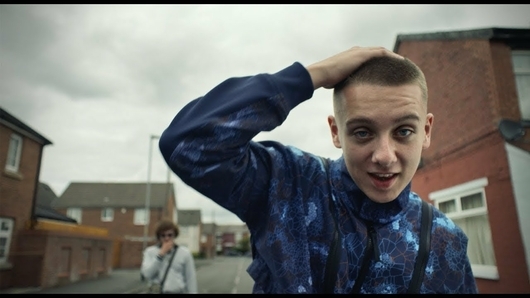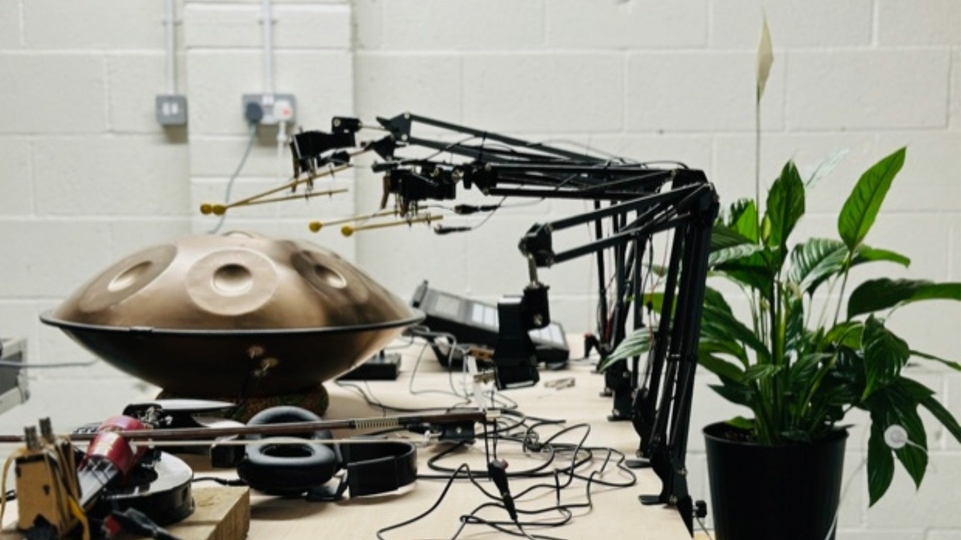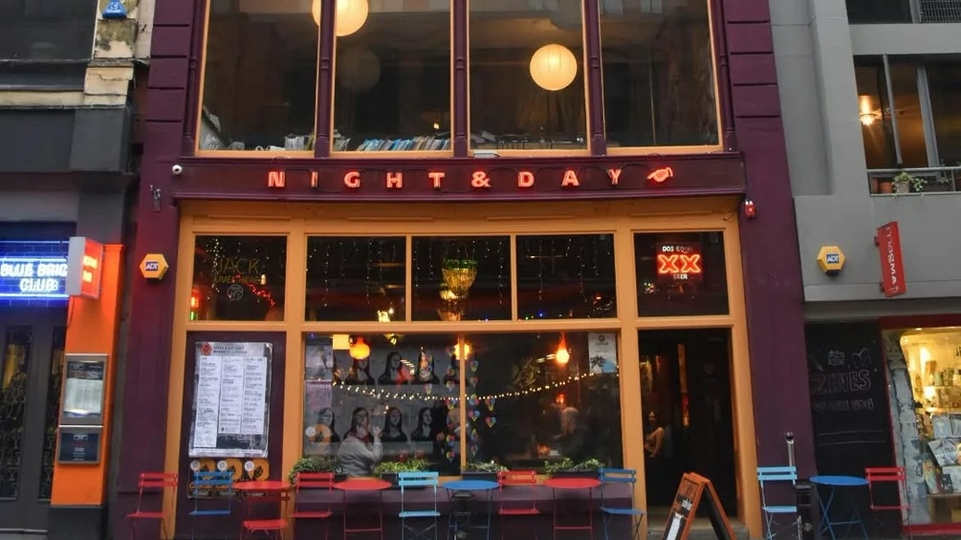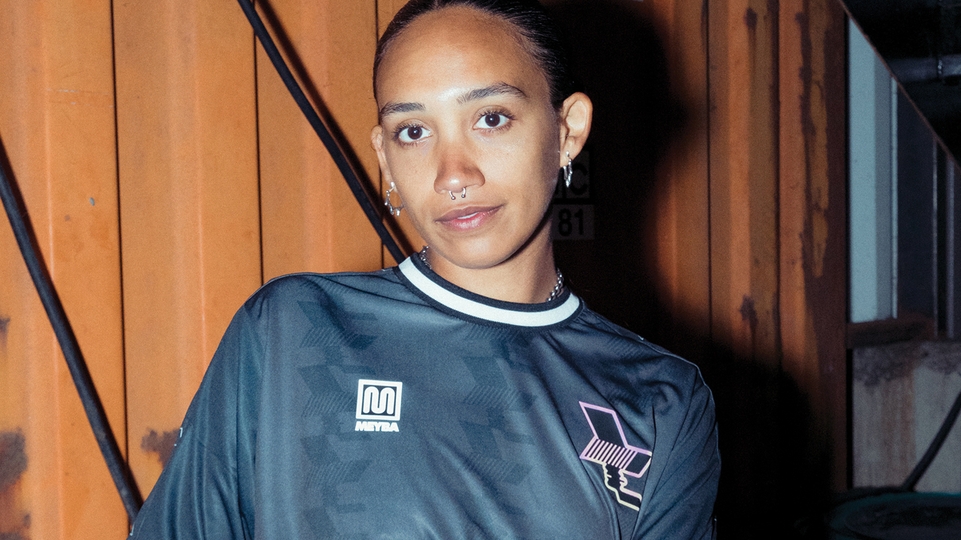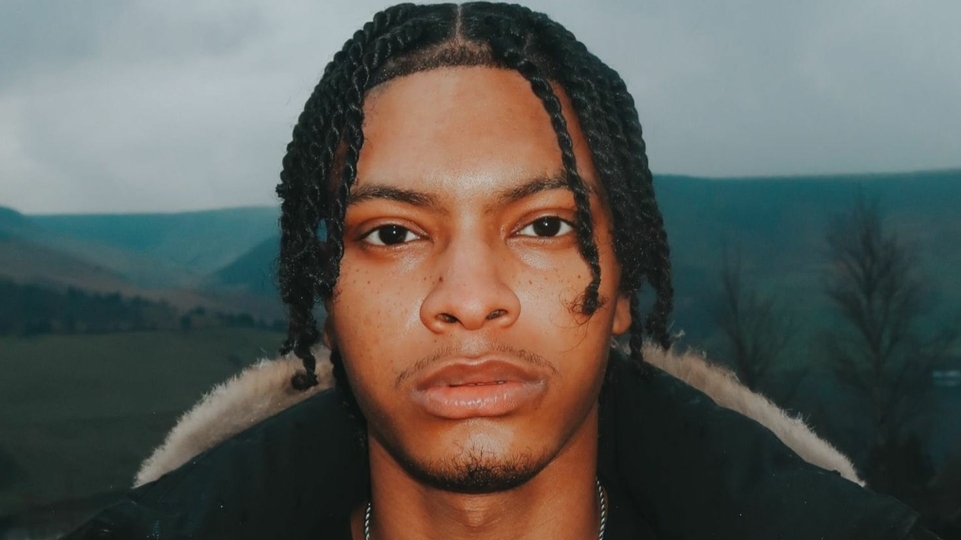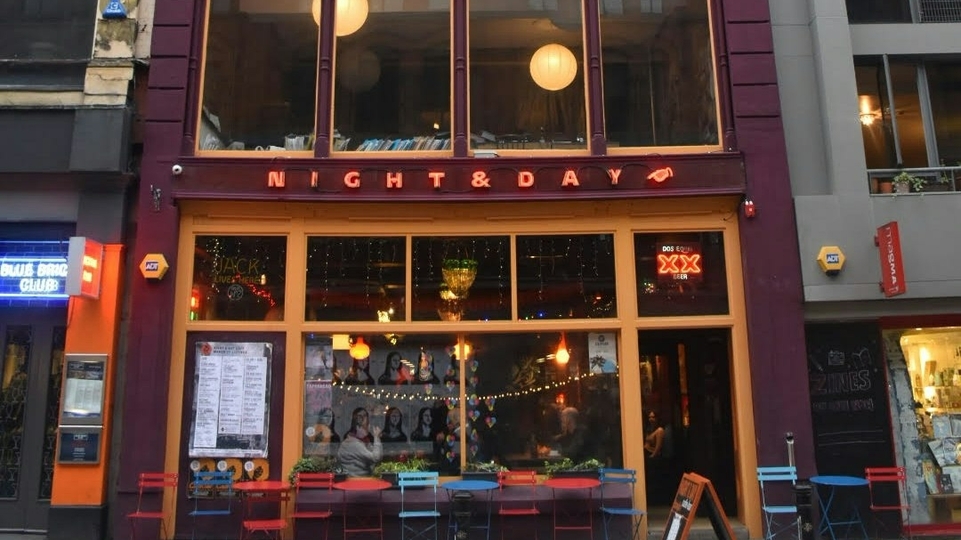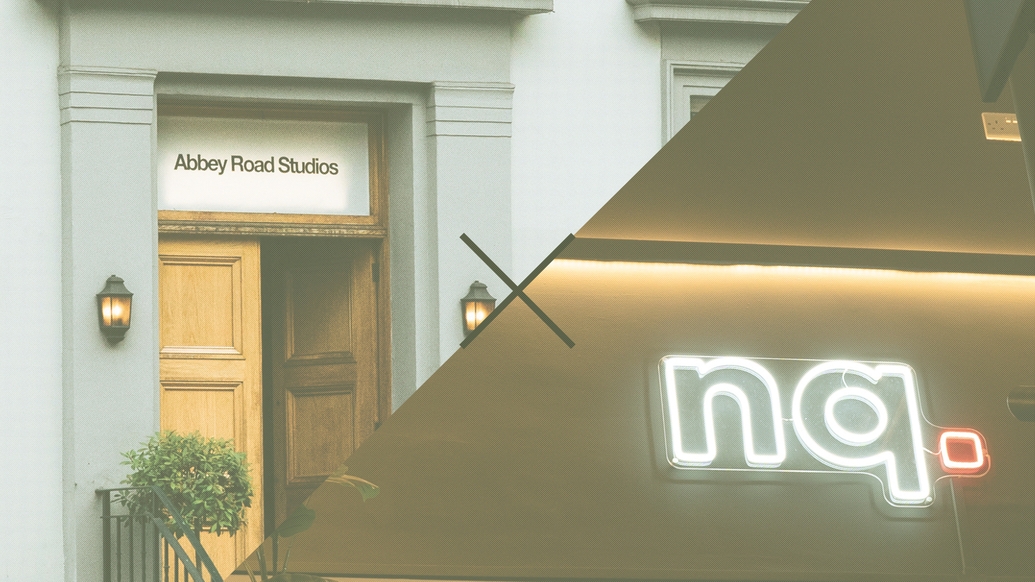
Power House: How NQ is elevating modern UK rap
Through its nurturing of new superstars like Aitch and other young local talent, Manchester’s NQ has become a veritable institution of modern UK rap, helping elevate regional artists across the UK. James Keith meets members of the crew during a recent takeover at the legendary Abbey Road Studios, and heads to NQ’s northern base to discover the secret to its success
NQ is reshaping Manchester’s musical identity one mega-hit at a time. An entertainment company consisting of a record label, management and publishing house based in the East Manchester suburb of Openshaw, its success stories include UK top 10 rapper Aitch, while the company studios and offices were opened by Greater Manchester’s Mayor and Labour MP, Andy Burnham, who the crew still count as a staunch ally and advocate.
It’s no surprise, then, that NQ is held up as one of the Manchester scene’s biggest triumphs of recent years, and the team have increasingly been getting involved in projects away from home too. Recently, they posted up at West London’s historic Abbey Road Studios, running writing camps steered by chart-dominating tag team WhyJay and LiTek — two of the producers on NQ’s publishing roster — and Jacob Manson, another producer and hit-maker in his own right. While it’s always going to be a bit of a thrill to be making music in a space filled with so much musical history, these are producers who’ve already made themselves at home in studios like Hollywood’s Westlake and LA’s Conway and Record Plant. “When we come in now and you have a little tour of the studios, it’s like, ‘Okay, this is sick’,” WhyJay says when we meet at Abbey Road. “But then you get in the room and you forget about all that.”
Before he joined NQ, WhyJay was basically the go-to engineer for the entire Greater Manchester area — for a time, even dabbling in rapping himself. LiTek, meanwhile, had been banging out big-room tech-house hits with people like Tom Zanetti and, under his Renko alias, linked up with Manny trio Mason Collective, before he began producing chart-conquering tracks for ArrDee, Aitch and the like. And Jacob Manson, in another life, had been one half of house duo Blonde alongside Eton Messy mastermind Adam Englefield.
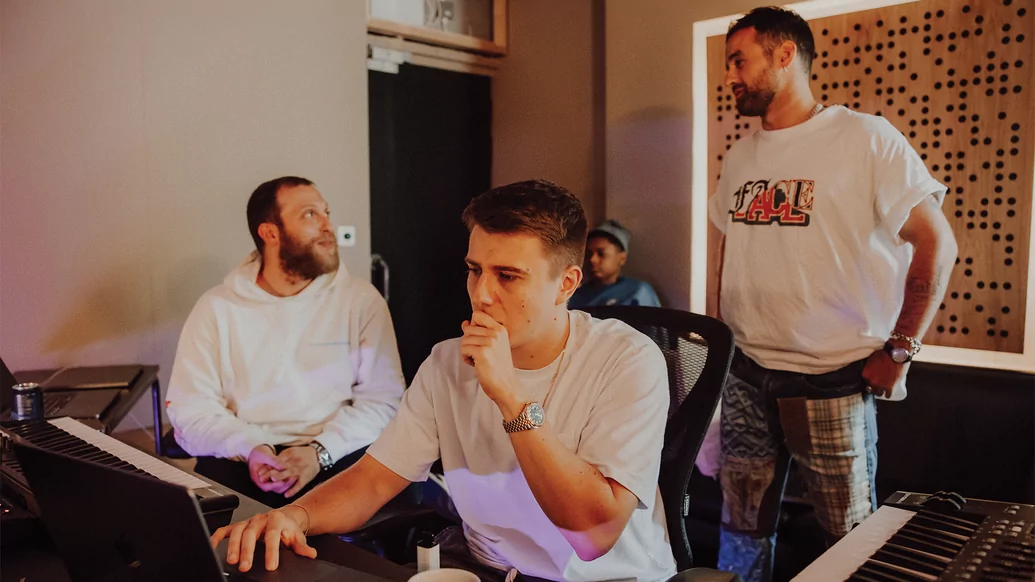
Between them, the three producers have an astonishing number of hits to their names, not just with the names already mentioned, but also Craig David, Jason Derulo, Pa Salieu, Blanco, Morrisson, and countless others. Crucial to their success is their understanding of the big picture. While part of the game is making a beat, handing it over and never seeing it again, it’s when they get to oversee the whole process — as with the Abbey Road writing camps — that they really get to make magic.
The process begins, they say, with preparation — and that’s before they’re anywhere near a studio. “It’s just having a good ear, essentially,” LiTek tells us, “and making the right decision. Because you can make a million and one different types of songs that all sound pretty good, of which one will stand out for [whoever you’re working with] specifically. In that sense, you are an A&R as much as a producer.”
WhyJay and LiTek have worked with chart-toppers like Central Cee (including on his recent hit ‘Doja’), but also newer faces like YouTuber/TikToker-turned-rapper Kidwild. The latter is an 18-year-old force of nature from Lewisham, South London, who hatched a music career to deal with the monotony of lockdown and quickly discovered he had an instinct for hits.
“I was a bit bored, bought a mic, just started making tunes,” he tells us, nonchalantly. “Then I finished my first song [2021’s ‘Popular Loner’] and I put it out, and it just done what it done.” That’s a very modest way of saying it smashed over a million views and became a viral hit on TikTok. (From what we hear him cooking up with the producers at Abbey Road, it’s safe to say things are only on the up for Kidwild.)
It’s a story not so far removed from Aitch’s, who, after cranking out some belting grime and rap freestyles, caught the attention of NQ founder Michael Adex in 2017. At this point, NQ — originally known as Northern Quarterz — had barely been conceived yet. Reportedly, Adex didn’t even know what he wanted to do with Aitch — whether to sign him to a label or manage him — he just knew he’d found a one-off talent who was on the brink of something absolutely massive.
“There’s always an element of the right time, the right place — an element of luck,” says Louis Brown, NQ’s COO and General Manager, “and having some amazing magic happen in the studio.”
The ‘Straight Rhymez’ video soon followed (currently sitting pretty on 26 million views), and Aitch has since become the star striker at NQ, having landed 10 UK top 10 singles, dominated festival stages across the world, and become a fully fledged crossover sensation.
Though the NQ crew are naturally very proud of what they’ve achieved with Aitch, and are chomping at the bit to start conquering other mediums like film and TV, the grassroots stuff is still the heart of what they do. Prior to lockdown, NQ spent a lot of time at schools, meeting with kids — particularly those at risk of being kicked out of mainstream education — to introduce music as a possible career choice. That, Louis explains, is part of NQ’s work as a CIC (community interest company), which helps secure funding that is then funnelled back into the community via these kinds of outreach programmes and opportunities to record at the NQ studios.
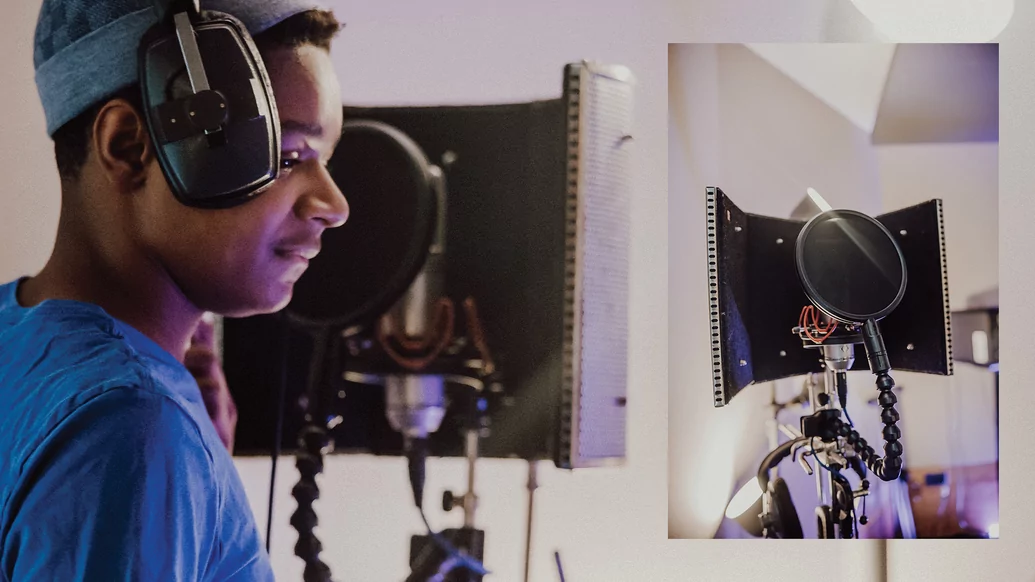
'What if we were to bring some of the new school, and partner them with some of the amazing engineers who have 40, 50, 60 years’ experience of recording across analogue and into digital; merge the two knowledge centres and see what we can discover?”
The partnership between NQ and Abbey Road is a special one, connecting the former to an important lineage of British music and bringing the latter in line with the current cutting edge. And it’s not a one-way street either, as some of Abbey Road’s in-house engineers, musicians and studio hands will soon be heading up North to take part in workshops and events in NQ’s local community.
The push and pull between legacy and future was, in a sense, what first inspired the collaboration. NQ has expanded remarkably quickly; the first seeds were only planted around 2017, and the studios and offices in Openshaw, NQ House, only built during lockdown. Having the backing of a world-renowned studio — one with considerable resources — will not only boost NQ’s standing, but accelerate the team’s mission to push credible rap even further into the mainstream.
“We thought, ‘it makes sense to have some sort of a base in London, and Abbey Road had never done a partnership with an external studio before, so wouldn’t it be amazing if we were the first one?’” explains Louis. “We’re regional, we’re specialist, and very different to what Abbey Road are used to. They’re this heritage studio known for The Beatles and for all these amazing orchestral scores, and then we’ve got us, who are very much grassroots, underground, very predominant in the UK rap space. What if we were to partner together and bring some of the new school, who are creating the new chart-topping hits — like some of our producers, who are now manoeuvring more into pop — and partner them with some of the amazing engineers who have 40, 50, 60 years’ experience of recording across analogue and into digital; merge the two knowledge centres and see what we can discover?”
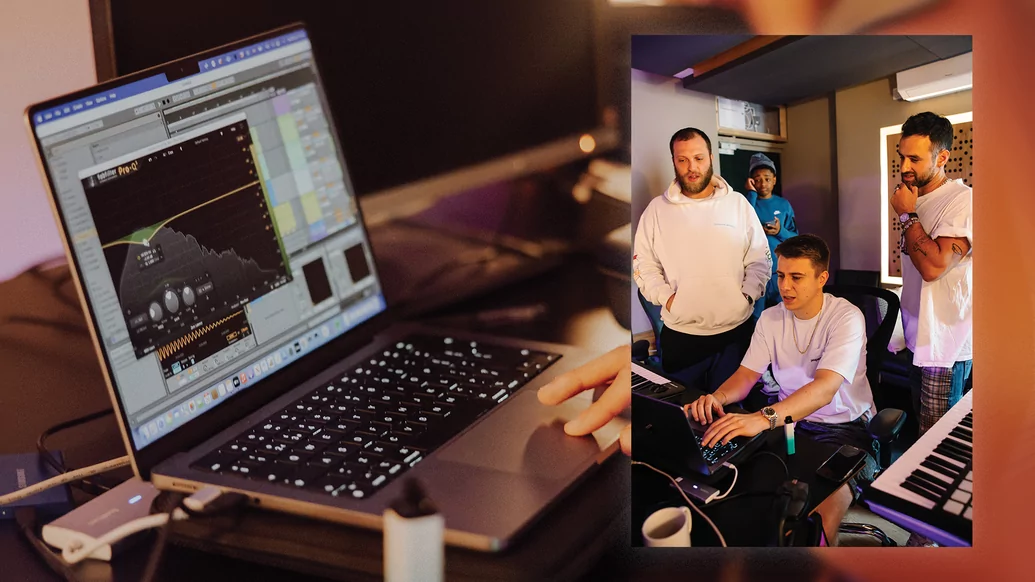
It’s important to remember, however, that the concept of legacy can be a double-edged sword. Manchester, of course, has its own storied music history, one it’s naturally proud of. But the repeated, almost clockwork-like name-checks of certain bands, nightclubs and a famously shambolically run label have become a bit of a millstone. It’s not that the NQ team are dismissive of the past, but it’s easy to understand why they might get frustrated that their work is constantly contextualised against music made four decades ago.
“Those guys were trailblazers and they put Manchester on the map,” Louis explains, “but not because that’s what they were necessarily trying to do. They were just trying to create something incredible. I don’t see why we can’t go back to doing that again. I’m not saying that we’re going to singlehandedly do that — we need the whole community to come together to do that — but that’s why Adex wanted to set his flag in the sand here and be like, ‘You know what? When I make my first decent cheque from working with Aitch, instead of going to buy a flat in London or holiday home somewhere, or a nice car, I’m going to buy a building in Openshaw and build studios, and start building infrastructure’.”
NQ is at the frontier right now, setting the pace in the charts, topping festival lineups and notching up hit after hit. In the rap and grime scenes, Manchester’s influence stretches back much further. But, just as the London accent took a minute to be accepted after rap’s emergence from the US, regional accents had to struggle for acceptance too. Though that seems to be mostly over — Manchester acts like Bugzy Malone, Meekz and Aitch have made it to the top of the game, and that’s not to mention talent from Birmingham, Liverpool and elsewhere — even now the industry remains weighted in London’s favour. The fight to make yourself heard if you’re from outside of the M25 can be a brutally hard one.
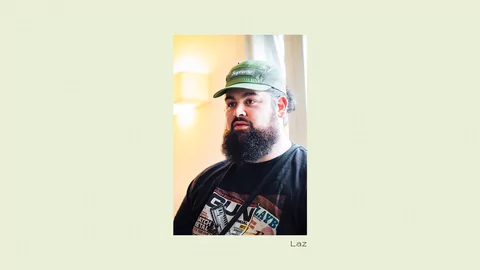
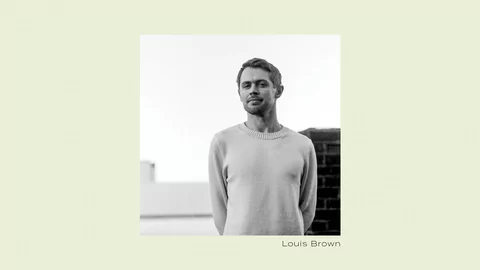
“I think for a very long time in Manchester, it has felt like — pardon my French — the game doesn’t give that much of a fuck about us,” says Laz, NQ’s A&R and the guy making sure the Abbey Road sessions run smoothly. “There’s always been the talent and there have always been people doing their thing, but there’s never really been an outlet for that in our generation. It’s just kind of like we link up and do shows with each other or make tunes, and you put them wherever.”
One of NQ’s first employees, Laz first met Adex through WhyJay, who was producing for Aitch at the time. Before that, he’d clocked up roughly a decade in Manchester’s music scene. He DJ’d with BURSTGANG, a Mike Skinner- and Murkage Dave-approved grime crew, who enjoyed a modest level of success making Manchester’s voice heard in the scene, before conflicting schedules and ambitions meant the crew went their separate ways. Laz ended up bouncing between booking and promoting for local clubs, before finding his calling with NQ.
“Everyone just does what they need to to get it done, really. And I feel like that’s the kind of attitude I take with me now and NQ House [has] as a whole,” Laz tells us. When he met WhyJay, for example, the latter was the local grime and rap scene’s go-to guy for production, mixing, mastering, engineering, and, for a time, music videos. “He used to make beats for people, engineer them and then, for a period, he got a GoPro and he was shooting videos for artists as well.”
Now together at NQ House, the crew are helping turn the tide of the UK scene, putting regional artists at the forefront. “I think people are looking to us a little bit, and I think in a way we’ve had to kick the door off to get that, but we have now,” says Laz. “It was worth it, and we are starting to get the love. And I think sometimes as well now, whereas once it was quite a hindrance being an artist from the North of England — and I used to see it with Aitch, Bad Boy Chiller Crew, all these guys, one of the things that defines them as artists is being Northern — now it can be a real positive for an artist, and set them apart from the industry in London.”
It’s been a long time coming for Manchester, and Michael Adex’s impact can never be understated. He initially hatched the concept of NQ in his university dorm, but Adex always wanted to be in the music industry. “It wasn’t exactly like Adex set out and said, ‘This is the five-point plan on how we’re going to start making incredible pop music’,” Louis explains. “It was more about being really authentic, making some fantastic music, and also having the ambition to be fucking massive. We’re all going to win out of this, and just have to drive in power to do it.”
Some shrewd early deals with Universal and Capitol — the former a joint venture to fund the record label and use Universal’s distribution, the latter a hefty advance for signing Aitch — buoyed NQ with enough cash and confidence to move from claustrophobic shipping containers (“a mad, derelict-ish building,” as Laz puts it) in Pollard Yard in Ancoats to an unassuming terraced house on Ashton Old Road in the residential outskirts of Manchester. Crucially, these deals were ad hoc and free from binding long-term agreements. That NQ was able to strike deals like that is testament to the organisation’s bargaining power and, by implication, its prospects.
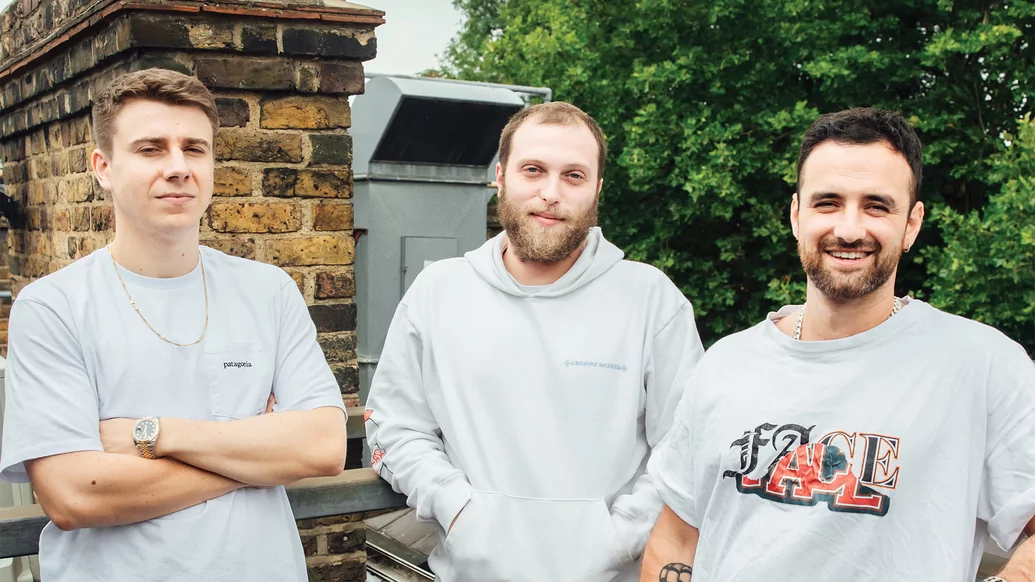
"We’re not necessarily looking for a quick return on this. This is about creating something that’s going to last."
Not just a marketing genius, right from day one Adex recognised the limitless power of having the right team. He’s a star in his own right now — a quick scan of his interviews will show he’s a quote machine too — but he also understands that like a good football team, NQ can’t solely rely on him. The core team of Adex, Laz and A&R co-ordinator Bilal Loane and a couple of others laid the foundations and also helped each recognise valuable qualities in others, enabling the operation to expand without Adex needing to be sat in on every meeting or copied into every email. It was through Laz, for example, that the producer tag-team of WhyJay and LiTek signed a publishing deal. Now they’re the in-house hit-makers who’ve seemingly given NQ a licence to print money.
The rest of the roster is well-balanced, with artists at just about every stage of career. There’s Jordan McCann from Salford, who caught some early buzz thanks to underground hit ‘Risk It All’ (currently on 5.4 million views with a mammoth eight-minute remix boasting another 4.3 million), and lots of other local artists like Mastermind, Akemi Fox, SVMI, Bankz, Sangy, Ayo Britain and DJ Win, many of whom have been with NQ since day one and remain fiercely loyal to Adex and the team.
Extending the remit beyond the North West, NQ have just signed a deal with Birmingham’s MIST, who, while still keeping a space at UK rap’s top table, kicked off the year by fronting his own TV show called Gassed Up. Also from Brum, they’ve got hybrid MC Mitch, there’s Brighton-based garage-rap duo Frankie Stew & Harvey Gunn, globe-trotting selector DJ Russke, West Londoner Rackz LC, Liverpudlian duo Kasst and AJFrmThe8, viral drill hit-maker Poundz, and Hastings rhymer Arka.
Both Laz and Louis speak excitedly about another young artist they’ve recently signed who’s a little harder to pin down. Another example of NQ stepping outside what’s expected, Bradford’s Blazer Boccle could be placed somewhere between Slowthai, Bugzy Malone and CASisDEAD, and even that doesn’t really come close. He describes himself as akin to Channel 4 series Shameless, combining punk and wry social commentary to satirise the way the rest of the country views and treats the North, all delivered with an absolute bellyful of piss and vinegar. He has a project due for release before the year is through.
NQ’s plans aren’t confined to the music industry, either. In fact, the crew are already looking at other ventures. One of their more recent signees is a young magician called Dawud, who, despite not being a musician, still works in those spaces. His YouTube channel is filled with shorts of him blowing the minds of people like J Hus, AJ Tracey and Tion Wayne. Like Adex and the NQ team, the man clearly knows marketing.
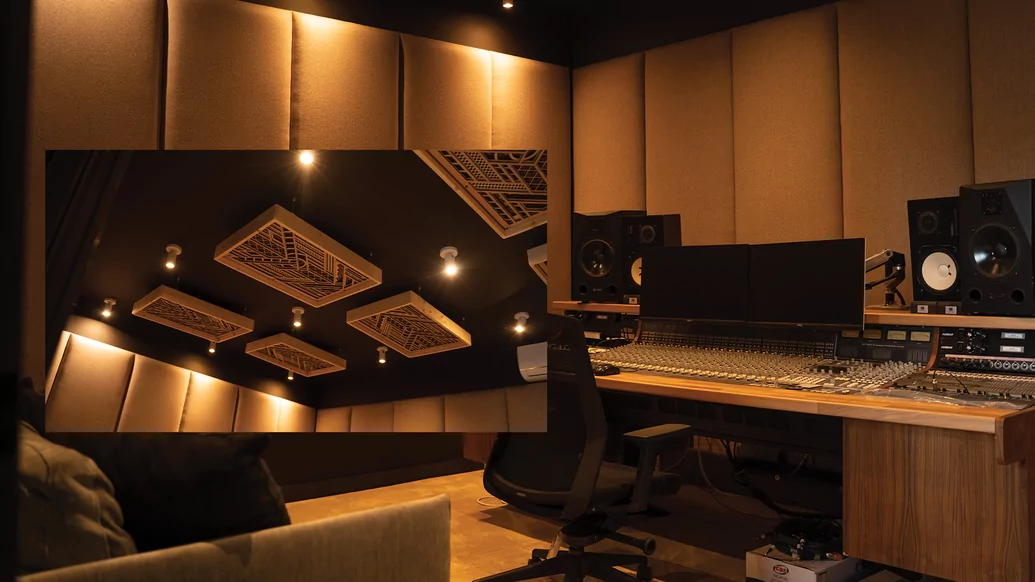
Up at NQ House, Louis shows us round the stylishly dark ground floor and the small but well-kitted three studios, each sporting a mic, console, monitors, and in the case of the larger one, a mixing desk and keyboard. The latter room, he tells us, was where Aitch put the finishing touches to his album, which is set to drop just a few days after this magazine goes to press.
“We had this section partitioned and there’s a full kitchen and everything through there, so he would just pull up around the back, come in through the back door and not be interrupted by anyone else in the building.”
Right now, the main focus is to keep NQ’s astonishing growth manageable. “We have bigger national and global ambitions,” says Louis, “but it’s a process and we need to be able to scale properly, while underpinning everything that we do. We don’t want to scale too fast and it all falls away. And we’re not necessarily looking for a quick return on this. This is about creating something that’s going to last.”
